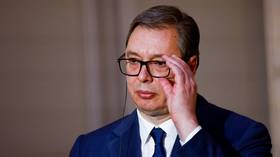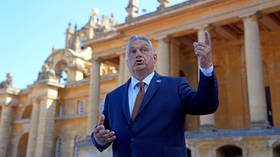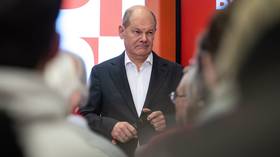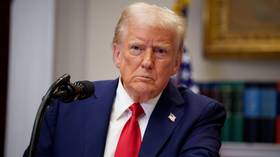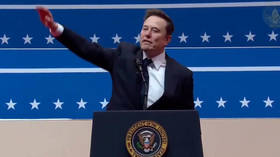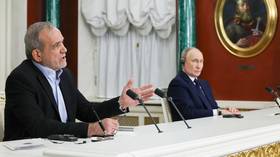Serbia and US are ‘historical allies’ – Vucic
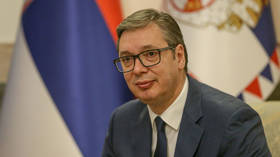
Serbia and the US have fought together at “crucial historic moments,” and Belgrade wants to continue to improve relations with Washington, Serbian President Aleksandar Vucic has declared. However, relations between both countries have swung from strained to openly hostile in more recent times.
Vucic attended a reception at the US embassy in Belgrade on Tuesday marking Independence Day, which the US celebrates on July 4. In a post to his Instagram account, the Serbian leader described the holiday as “one of the most important moments in the history of the USA,” and “a reminder of the dedication to the spirit of freedom and justice…on which the proud past, present, and future of Serbia rest.”
“Allies at crucial historic moments, Serbia and the USA share a long-standing partnership and cooperation, and I hope to continue to improve our relations based on mutual respect and understanding,” Vucic concluded.
Serbia and the US were allies during the First World War, and Washington backed anti-communist monarchists in Serbia during World War II. Following the establishment of the Federal Republic of Yugoslavia at the end of the conflict, the US maintained relations with Josip Tito, and began funneling some military and development aid to the Yugoslav leader after his split with Joseph Stalin in 1948.
During the breakup of Yugoslavia, however, the US imposed crippling economic sanctions on the Yugoslav government, armed Bosnian Muslim forces, and led a NATO air campaign against the Bosnian Serbs. US and NATO forces then subjected Serbia to a three-month bombing campaign in 1999, forcing Yugoslav leader Slobodan Milosevic to pull his forces out of Kosovo and placing much of the historic Serb province in the hands of ethnic Albanian terrorists.
Milosevic was overthrown in a US-funded ‘color revolution’ a year later. Vucic, who was serving as minister for information at the time of Milosevic’s ouster, has recently accused Western powers of plotting a similar coup against him, over his refusal to sanction Russia and recognize Kosovo’s claim of independence.
Vucic has previously spoken about building better relations with NATO, and in an address to Serbian soldiers on Wednesday, said that he is “counting on good cooperation” with the bloc to maintain stability in Kosovo. However, he has vowed to resist pressure from the West to sever relations with Moscow, and said earlier this year that he believes NATO never would have bombed his country had Vladimir Putin been president of Russia in 1999.
